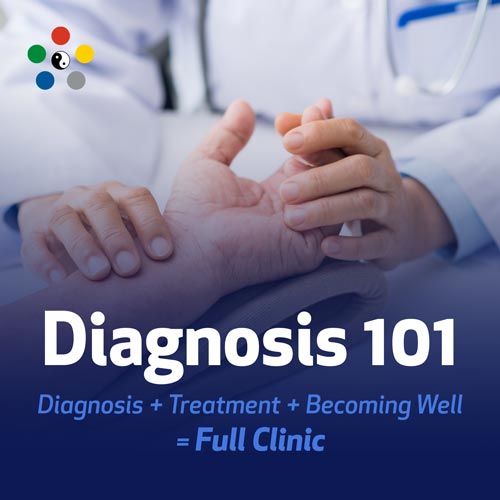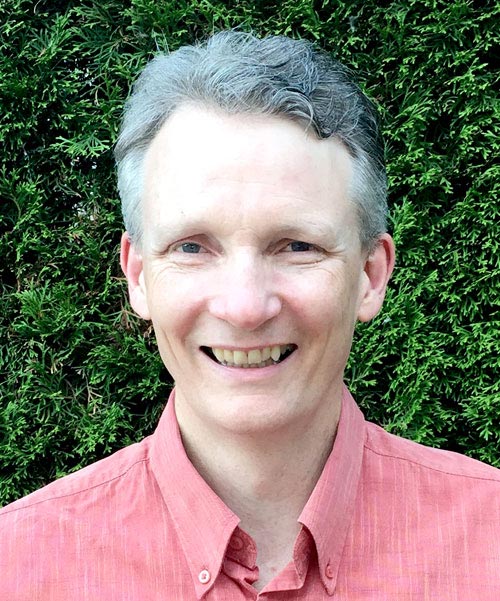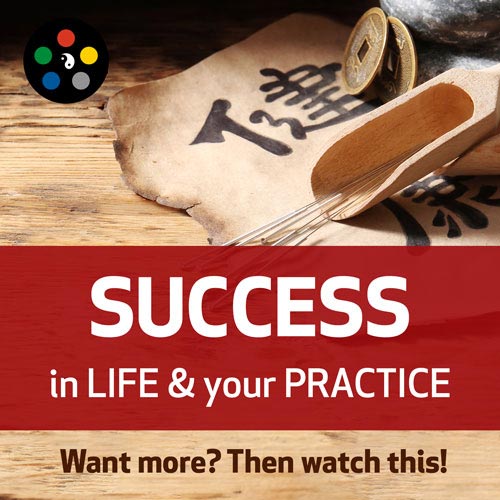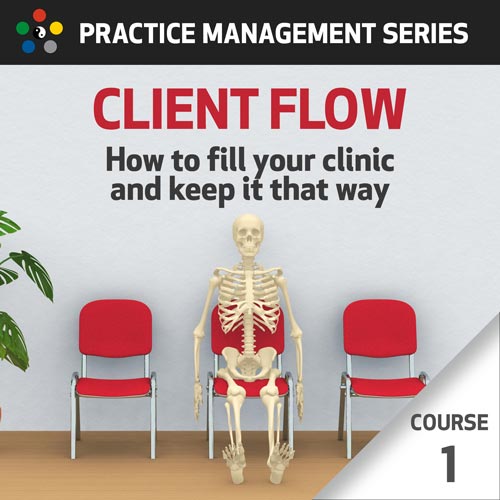What is "Practice Management" and do I need it?
What is worse than spending 4 years in TCM school, then working 2-8 years in practice and closing the doors having been unsuccessful?
Being in practice for 30-40 years and having struggled the whole time!
There are problems in our business and it is not just dry needling (but it’s on the list). Is it hard to get clients? Do you like sales and marketing? Do patients complete your course of care?How is managing work/life balance?
And yet, do you know a good treatment for tennis elbow, anxiety or gout? How did you learn those treatments? Likely some schooling or instruction. That is a form of practice management training.
A lot of clinics close down, way more than should. Rarely is it because of the acupuncture, normally it is other areas of “practice management” not being taught enough, understood properly or executed successfully. Welcome to the first instalment of Barefoot Practice Management’s getting “Success in Life and Practice.”
Have you heard “you are on the path”, do you know how the path got there? Practitioners before you blazed a way for you to follow and have“Success in Life and Practice” and here are some of the things they can teach.
Start with the end in mind. What is your definition of “Success” in key areas of your life and practice? Examples are: personal development, relationships, business, travel, mentorship...
Let’s take a business example. You want to have 8 paying clients every working day. How many do you have now? Let’s say 4. Do you think in the history of our business there has been a clinic that had the same goal and got it done? Would you like to know how they did that?
They built what we call a “Map”. They knew where they were and where they wanted to go. Maps have rules to them and if you follow the rules of the map, likely you will get from your start to your end. To do that you will need some “Skills".
Skills are the most valuable things you can learn from others. You can learn skills all on your own, but it can take a long time and when you ask a more senior practitioner they will also tell you, learning any skill has costs. Time, effort and pain.
It takes time to learn skills, there is the cost and with any skill there will be some “feedback” which is often painful to our emotions, feelings or expensive. It is important to remember everyone is paying these costs. The difference is in how we react to the pain and that will dictate how we are compensated for that time, effort and pain.
Practice Management in a broader sense is when a mentor compresses your learning curve on how you; make your Map, acquire your Skills and get to your Success.
Talk to anyone in ANY business that has been around for 15 years and ask them how many of their peers are also STILL IN BUSINESS? You will find it is not many. My Dad was a bank manager and he would tell me 80% closed their doors because they ran out of money.He continued to say, they just would not listen to reason on how to run a business. They would burn through their resources which are money, social capital, emotional commitment and support. Once those are “burned up”, people become “burned out”.
Our business is such an honour to be in. The opportunity to have a person come to our clinic and trust us with their health is a very special thing. I hope you get a day when a new mother comes in and hands you a baby and says they could never have this without your help. Or a worker comes in and shakes your hand because after 2 years of failed treatments, he’s back to work because of your treatments. Those are great days.
They are other days with less positive feedback. You can learn how to handle those all by yourself or from random people on social media or you can engage in a directed Practice Management system.
A simple structure you can start with is:
Step 1 . What do you define as Successful in key areas of your life?
Start with you: mental, physical, emotional, nutritional, primary and secondary relationships (family and friends), financial, educational, and clinical.
Step 2 . Honestly, brutally honestly where are you currently.
E.g.Success is exercise3 times a week.I have not exercised in two years. = Map
Step 3 . Get the Skills to go from where you are, to where you currently define success.
Oh, if it was so easy. Well it is that easy, but there is this small topic of feedback and you are going to get some. Much of it will not be enjoyable when you experience it. Watch, read or listen to biographies and you will find out all “successful” people have had a whole bunch of difficult times. They chose to follow their map and arrive at success. Other people stop and they may return to become successful one day, or many just burn out and fade away. Which are you?
It has never been easier to get the skills you need to succeed in life and practice. Go get them and get what you want!
Keep an eye out for the series of Practice Management articles coming here, as we drill into specific areas that cause most clinics a lot of trouble.
Be “Successful in Life and Practice” it is worth it and if you had to choose, always choose success in life, but you may need a successful practice to fund it.
Ward started Barefoot Practice Management, to teach and demonstrate how others in the field can be more successful in clinic and personally. He holds certificates in professional coaching.
You can find his courses covering this topic in more detail and other key areas at Net of Knowledge and worldwide partners.
Prior to his near-fatal MVA, he ran large businesses in 30 countries, dealing with millions of dollars and hundreds of staff. He has run clinics large and small since 1996.
Ward’s goal is to ‘Guide Acupuncturists to Success in Life and Practice.’
Natural therapies returned my life to me. I will spend the rest of mine doing that for others. Practitioners have the right and obligation to help others and make their family successful which includes financial independence.”
Other Courses By This Teacher




Overview
Success in clinic comes from excellent diagnosis, skill in treatment and patients get “well”. Patients that have become “well” talk, they talk to everyone everywhere. That results in your success. Ask a senior practitioner in a full practice how much they advertise. It is zero as they are always full from patient referrals.
The challenges in diagnosis are many. If the patient had a solution for their problem they would not be seeing you. Therefore you must understand they will not have all the information you need to solve their problems. You will need to discover and figure out what is relevant and how to use it. You will learn that structure in this course.
Starting with Listening, the power of listening to a patient’s story is profound. How to use their words to build trust and also recognizing what they left out of their story can be key. Diagnostic looking, “the skilled doctor can tell the patient had their gallbladder removed, before they take off their heavy winter coat.” I show how to look and feel as someone walk, stand, sit and lay and what to do with that information.
Diagnostic touch, being able to feel tensions in a person and understand how that affects the whole structure is vital. Pulse taking is likely the biggest advantage to our medical system. A 101 system to take pulses and use that information, along with several case examples from mild to wild. Diagnostic questions, if they are not getting better you forgot to ask something and more...
Learning Objectives
- Learn how to take pulses and chart them.
- How to take the diagnostic data and build a treatment strategy.
- Learn how to question, look, listen and assess a patient creating your diagnostic data.
Your Teacher

Ward Willison
Success in Life and Practice—join Ward on a trip to your success: a business career, a near death accident, and apprenticing for 10 years with a master. His clinic does 2500+ clients with 3 months off a year, since 2008. Learn the processes that work!
Categories
Tags
Overview
Why do some clinics succeed and others close down? How can I be a success?
Watch this and find out some of those answers!
You will hear from someone who talks with you not at you. Sharing some stories of winning and losing and how he kept going and built a solid practice. It is not always easy, but it was always worth it.
Ward is going to walk you through a brief assessment to figure out where you are on your map to clinical success. If you know where you are on a map and know where you want to go, and you are willing to learn the skills required to get from A to B. You will likely get there.
Learn why in the beginning you memorize scripts and follow directions. But by the end you forget all of that “stuff” people told you to do and you run your clinic your way.
Ward will show you the three stages of business, giving skills and requirements for each and goals to get you to the next level.
Learn about Client flow, Clinic flow, Financial flow and Life flow. How they affect you, your family and your business. Each flow has three stages and there is a great tip given for each one. Things you can reflect upon and see if you are doing them. As when you incorporate those tips into your practice you will get better results clinically and financially.
Let’s begin.
Learning Objectives
- Learn the 3 stages and 4 flows of business, and what is required at each level to help a practice thrive.
- Learn the challenges and highlights of running a medical practice, and how to build a roadmap for success.
- To understand client and sales numbers and build a process to track them and learn the income potentials of the clinic and what is required to reach those levels.
- Learn strategies to balance both clinic and personal life, and how each aspect can complement the other.
- Understand how to navigate, plan, and deal with clinic challenges in a variety of scenarios, and possible solutions for each situation.
Your Teacher

Ward Willison
Success in Life and Practice—join Ward on a trip to your success: a business career, a near death accident, and apprenticing for 10 years with a master. His clinic does 2500+ clients with 3 months off a year, since 2008. Learn the processes that work!

